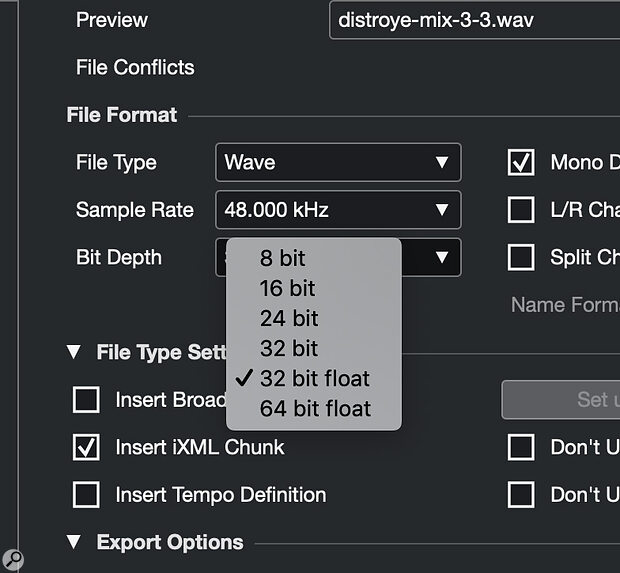 If your DAW offers word‑length options on mixdown or file export, it probably has dither built into the process.
If your DAW offers word‑length options on mixdown or file export, it probably has dither built into the process.
If I open a 16‑bit, 96kHz audio file, resample it to 48kHz, and then export it again, still at 16 bits, do I need to apply dither? The overall word length hasn’t changed, so do quantisation errors happen in this process? I use Audacity as my DAW and normally work in its 32‑bit floating‑point format.
SOS Forum post
Technical Editor Hugh Robjohns replies: If the word length is reduced by any form of signal processing, then it is necessary to apply dither so that low‑level information carried in bits below the truncation level is retained in the noise floor.
In your example, although the input and output word lengths are indeed the same, the word‑length has been changed by the processing in between. The DAW host’s 32‑bit floating‑point format isn’t relevant here; that’s just the storage medium. What matters is that a sample‑rate conversion involves low‑pass filtering (because it is necessary to remove any signals above half the output sample rate). The maths involved in that typically generate a very long word length to retain accuracy, so you might start off with a 16‑bit source but the output from the SRC will be 24 bits or more. Consequently, dither needs to be applied when that signal is truncated down to 16 bits again.
If the sample‑rate conversion is performed as a standalone process, and the software allows selection of the output word length, I’d expect dither to be applied automatically as part of that process. However, if it’s done by insert plug‑ins in the DAW, its output will be in the DAW’s native format (eg. 32‑bit floating‑point) and you’d need to apply dither at the end of the signal chain (ie. the last stage before the signal goes to your D‑A converters, or as part of any in-the-box bounce/export process).
